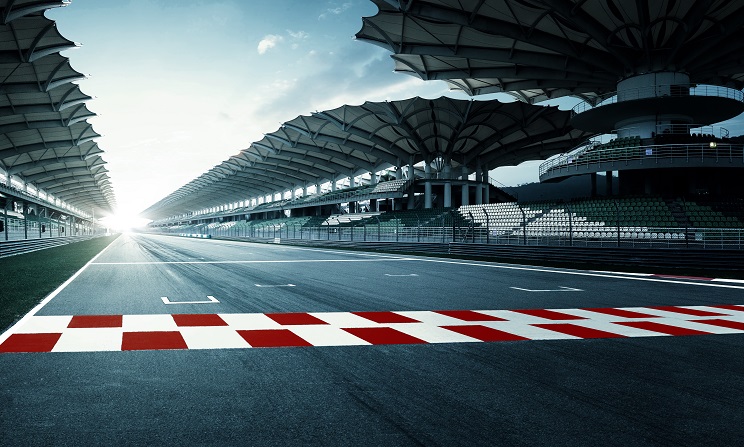Everything you need to know about Formula 1

The exciting thing about Formula One – amongst many exciting things – is that much of the technology you find in your ordinary road car is likely a consequence of the tech developments of mechanics in this sport. Ultimately, Formula One is 20 high-speed cars driving as quickly as humanly possible around 20+ circuits around the world– but it is not an individual sport of a single driver. This is a team sport where the development of the car often matters more than the person controlling it.
The teams
The sport is split into constructor teams. There are those teams who are manufacturing cars – with engines provided by the team themselves. Then there are customer teams – who buy the engine from another competing team. So, Renault provides the engine to Red Bull (soon to be Honda) – but Mercedes provide their own engine. The advantage is obviously with the manufacturers – who can make the engine fit the rest of the setup of the car – but constructing an engine is an expensive option and not one available to all the teams.
The current teams dominating the competition are Mercedes and Ferrari. Red Bull is a part of this group of the best teams – but the engine they are using from Renault is putting them at a distinct power disadvantage to the other two teams. There is then a midfield made up of Toro Rosso, Hass and Force India – who compete for the midfield positions.
The cars
The cars are works of art and bespoke to each team. There are set rules for how the car can be designed and part of the skill of the teams is to develop a car that pushes the edges of these limitations. There is really only the brake light and the tyres that are the same on the different teams’ cars. The rest of the car is carefully designed – a delicate mix of wing, aero, engine, and more – to maximise the potentials of the driver at the different circuits.
To limit the escalating costs in F1, teams are limited in the number of times they can change certain parts in the car. If they exceed these limits, they are penalised with grid penalties. This has not been a favourite with the fans but has been seen as necessary to support competition amongst all 10 teams.
The race weekend
A Formula One race is only one part of the race weekend, which usually starts on Friday (Thursday in Monaco) and ends on Sunday. The race weekend is made up of three free practice sessions, qualifying and the race itself. Points are only awarded for the race, but if you speak to any petrol-head, they will tell you who wins sessions, how many poles have been won, how many front rows, how many positions made up in the race from qualifying.
The free practice sessions are intended to help the team work together to make the best set-up of the car possible. The conditions of the track, the current model of car, and the tyres can all impact the way they might want to change settings. They will do a long-run, work out the life of tyres, they will do a quali-sim and they will do practice starts, amongst other things.
It might seem that influence on the end result is minimal in these free practice sessions, but nothing could be further from the truth. It is where the team will devise the strategy for the race and therefore where they will win or not win the race – barring extraordinary circumstances. It is also where the driver can seriously mess up and gain penalties for poor or dangerous driving. In short, you can quickly lose the race in free practice, though obviously not guarantee the win as such.
Qualifying is made up of three rounds. In each round drivers are dropped from qualifying depending on how slow they are. Five are lost in session one and five from session two – leaving 10 drivers to fight it out for the top ten positions. They will all likely want pole position – starting first on the grid. However, some of the mid-field teams have begun to compete for position 11 because they start the best of the rest and get a free choice of tyre. If you start in the top 10, you must begin the race on the tyres that have seen the driver through Qualifying Session 2. This can be a disadvantage and make you slower. All about the strategy remember.
Then, on Sunday – it is the race. Two hours or a set number of laps and whoever is in front wins.
The drivers
You are likely to have heard of some of the greats of racing: Michael Schumacher, Alain Prost, Ayrton Senna, and more recently, Lewis Hamilton. The future is likely to be Max Verstappen – if you are wondering where to place your ante bet.
The skill of a driver can sometimes outstrip the capacity of the car. It is the flexibility of the driver to play to the strengths of the machine they are given that makes them great or not. If they are hard of their tyres, if they cannot cope with limited downforce, if they cannot adapt to driving the car in the wet – it is unlikely they will ever be great.
The best drivers often have a detailed understanding of the workings of the car. They will spend a lot of time with mechanics understanding how different set-up decisions will impact on how the car drives. By doing this they know when they can brake hard, they know when they can slide more, they know when they can push the capacity of the engine – therefore, they get more out of the car than others who do not seek to learn and work as part of the team.
The competition
There is a constructors’ competition, and then there is the drivers’ championship. Depending on where the driver and car come in the top ten depends on how many individual and team points are allocated. 25 points are given for a win, 17 for a second, and these point numbers drop to 1 in position 10. All teams have two drivers, therefore at times the strategy is to get both drivers home for the highest number of team points, and this may conflict with the interests of the individual driver – and this is where the fun and games often begin! We might leave explaining team strategy, and driver hissy fits for a different article.
Relevant news

10 Greatest Women’s Tennis Players of all time
It is a tough ask to narrow down the all-time greats of women's tennis to…

Most successful football clubs in Europe
In 2018 all the semi-finalists in the World Cup were from Europe. This would suggest…

Why is football the most popular sport in the world?
Football in its official form spans more than 100 years – its origin stemmed from…

The most popular sports for betting in the UK
Sports betting has become increasingly popular over the years – thanks in part to the…
